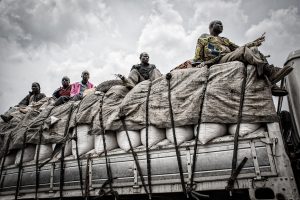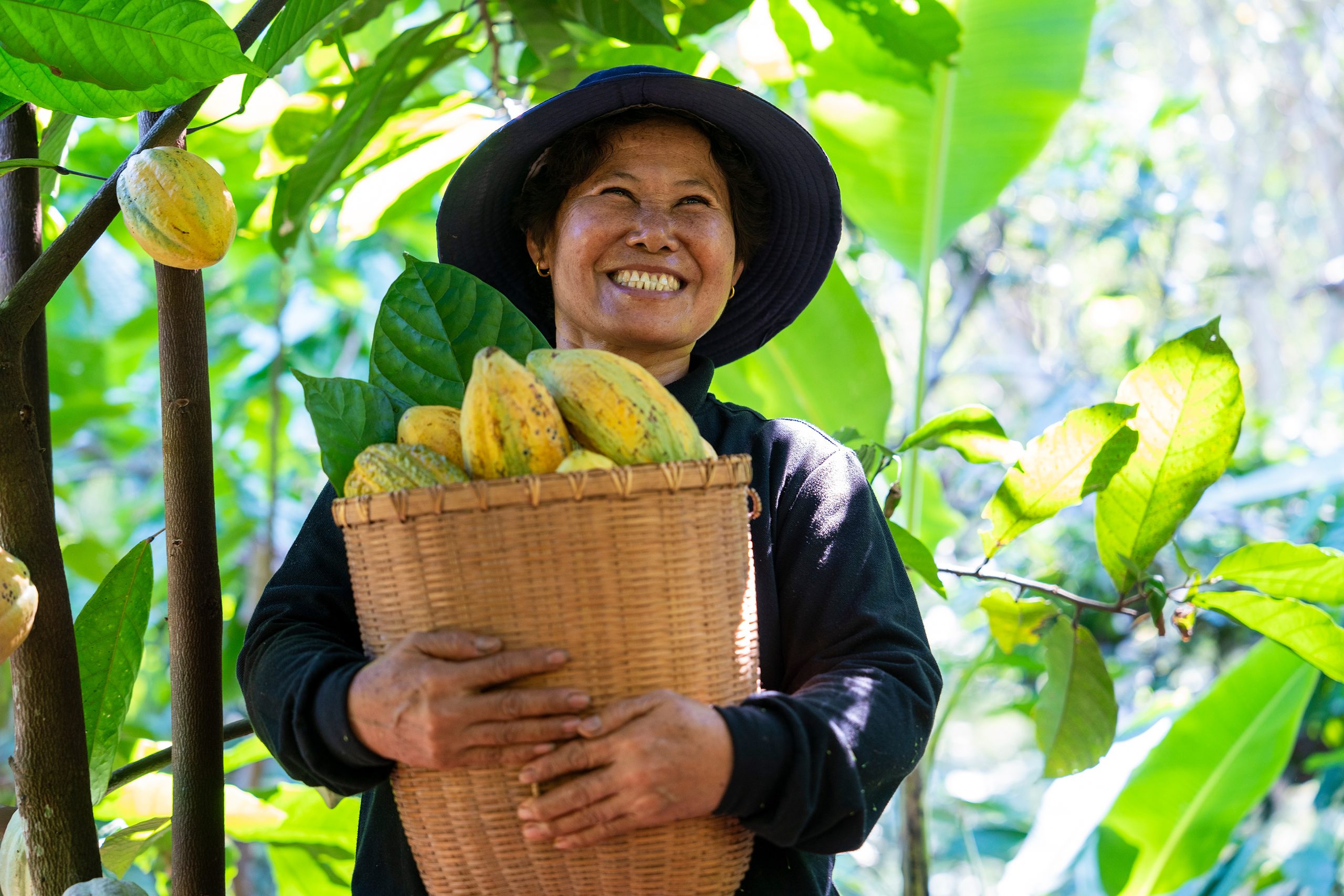Transitioning Responsibly: Ensuring Ethical Supply Chains in the Renewable Energy Boom
The renewable energy transition is a defining challenge of our time. As countries, industries, and organisations accelerate their efforts to meet climate goals, an increasingly important question emerges: Are we ensuring an ethical transition to renewable energy?
The demand for renewable energy in Australia and New Zealand is growing exponentially, with a particular emphasis on technologies such as solar power, wind energy, and electric vehicles. However, the growth of these industries is accompanied by complex, often hidden risks related to modern slavery and forced labor in supply chains. These issues are increasingly being scrutinised by governments, NGOs, and industry leaders globally, as they recognise the need for not only a green transition, but also a just one.
Renewable Energy: A Double-Edged Sword
As governments and businesses across the globe commit to achieving net-zero targets and transitioning to renewable energy, the demand for raw materials like solar panels, wind turbines, lithium, and cobalt has surged. This demand has led to a complex and often opaque global supply chain that is vulnerable to exploitation.
The solar panel industry, for instance, has come under scrutiny for the alleged use of forced labor in regions such as China’s Xinjiang province, where Uyghur Muslims are reportedly being subjected to forced labor in the production of materials for solar panels. A 2021 report found that roughly 45% of the world’s solar-grade polysilicon came from Xinjiang at the time, where systematic forced labour programs are widely documented. This has led to the coining of the term “solar slavery”, highlighting the dark underside of one of the world’s fastest-growing clean energy sectors.
Cobalt mining, which is essential for electric vehicle batteries, has similarly been linked to dangerous and exploitative working conditions in the Democratic Republic of the Congo (DRC). A 2023 study by the Business & Human Rights Resource Centre revealed that approximately 78% of cobalt workers in the DRC are subjected to forced labour conditions, including widespread use of child labour as reported by the U.S. Department of Labor.
While renewable energy is undoubtedly a critical part of the fight against climate change, these unethical practices threaten to undermine the industry’s moral integrity and diminish its potential benefits. Ensuring that renewable energy supply chains are free from modern slavery is becoming an imperative, not just for businesses, but for the entire planet.
The Regulatory Environment: Growing Expectations
As the global renewable energy transition accelerates, the importance of ensuring that this shift is both sustainable and ethical has never been clearer. The demand for clean energy technologies, such as solar panels, wind turbines, and electric vehicles, is increasing, but with this demand comes a pressing need for transparency and accountability within global supply chains.
The connection between modern slavery and the renewable energy sector is critical. As countries set ambitious renewable energy targets, the question must be raised: Are these transitions truly ethical? A renewable energy future cannot be fully realised if it relies on exploitative practices that undermine human rights.
Countries like the UK, and the United States have already recognised this connection and taken steps to ensure that modern slavery is not embedded in the supply chains that fuel their renewable energy ambitions. While in Australia, where Modern Slavery reporting is legislated, and in New Zealand where the renewables sector is booming, awareness is growing.
Does Australia’s Modern Slavery Legislation ensure an ethical transition to renewable energy?
Australia is undergoing one of the fastest renewable energy transitions globally. The Australian Energy Market Operator (AEMO) projects that by 2030-31, around 83% of National Electricity Market (NEM) energy could be sourced from renewables. Solar will be a major contributor, with rooftop and utility-scale solar expected to dominate generation capacity. However, without careful management, Australia’s renewable energy transition risks being built on unethical foundations.
In Australia, the Modern Slavery Act 2018 requires entities with annual consolidated revenue over $100m to report annually on the risks of modern slavery in their operations and supply chains, and the actions taken to address those risks. While the act does not include specific legislation to ensure an ethical transition to renewable energy, there is growing awareness and acknowledgment. The Australian Government recently updated its guidance, explicitly identifying renewable energy supply chains, particularly solar, as a sector of concern. The Clean Energy Council in Australia has also acknowledged the issue, citing in 2023 “detailed allegations of forced labour within the global solar supply chain”.
New Zealand’s growing awareness – Support for a Modern Slavery Bill
New Zealand is leading the way in renewable energy generation, with 87% of its electricity now sourced from renewable sources, making it one of the highest globally (MBIE, 2023). This puts the country on track to meet its target of 90% renewable electricity by 2025 and to achieve 100% by 2030. However, alongside this clean energy progress, there are growing calls for greater accountability in ensuring that modern slavery is not embedded within supply chains, especially as demand for materials like solar panels, lithium, and cobalt grows.
By aligning ethical supply chains goals with their leadership in the renewables space, New Zealand will put themselves in a favorable position to demonstrate how sustainability and ethical business practices can coexist.
UK Setting the Standard – Great British Energy Bill Amendment
The UK has taken strong legislative steps toward eliminating modern slavery in supply chains in the past, with recent developments strengthening these further in the renewable energy sector. In April 2025, an amendment was made to the Great British Energy Bill outlining a comprehensive framework to ensure that energy companies, particularly those in the renewable energy sector, adhere to strict ethical guidelines in their supply chains. This includes measures to verify that no forced labour is involved, especially in the production of materials like solar panels and batteries. Businesses now have to take reasonable steps to remove forced labour from their renewable supply chains across the UK. This landmark change underscores the UK’s ambition to ensure an ethical transition to renewable energy with a focus on a sustainable energy sector free from exploitation.
The USA’s targeted approach – The Uyghur Forced Labor Prevention Act
In the United States, the Uyghur Forced Labor Prevention Act (2022) presumes that goods sourced from Xinjiang, including critical materials for solar panels and electric vehicle batteries, involve forced labor unless proven otherwise. This regulation has significant implications for global solar and battery supply chains, as it directly impacts the importation of goods tied to Uyghur forced labor. Companies face stringent requirements to prove that their products are free from forced labor, or risk being barred from entering the U.S. market. This law has already led to several high-profile cases where goods, including solar panels, have been blocked from entry due to suspected forced labor connections.
The Path Forward: Transparency, Collaboration, and Accountability
As governments continue to introduce and strengthen modern slavery regulations, Australian and New Zealand businesses transitioning to renewable energy must adapt by ensuring transparency in their supply chains. This is not only a moral imperative but also a business necessity. Failing to address modern slavery risks can result in reputational damage, legal repercussions, and potential loss of market share.
Key steps Organisations Can take to Ensure an Ethical Transition to Renewable Energy:
- Supply Chain Mapping and Risk Assessment
- Identify suppliers at tier 1, 2 3 and beyond and assess regions of operation.
- Pay particular attention to high-risk commodities like polysilicon, cobalt, and lithium.
- Supplier Engagement and Contracts
- Require suppliers to disclose sourcing information and labour standards.
- Build contractual obligations for ethical sourcing into procurement agreements.
- Independent Auditing and Verification
- Transparency and Reporting
- Publicly disclose modern slavery risks and mitigation efforts.
- Meet reporting obligations within your organisation’s jurisdiction.
- Data Consolidations, Efficiency and Continuous Monitoring
- Platforms like Informed 365 help organisations track, manage, and mitigate supply chain risks through real-time data analytics, supplier assessments, and compliance reporting tools.
As the world accelerates its shift toward renewable energy, it is essential that this transition is just as well as green. Organisations in Australia and New Zealand transitioning to renewable energy must take note of evolving regulations and commit to ethically sourcing materials, embracing transparency, and contributing to a fair and just global energy future.
Informed 365 is here to help your organisation navigate the complexities of the renewable energy transition and ensure your supply chains are ethically sound. Whether you are looking to strengthen your modern slavery reporting or simply want to ensure your supply chain is free from exploitation, we offer tools and guidance to support you every step of the way. Book a demo today.












